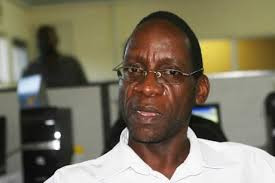
GOVERNMENT has embarked on stakeholder consultation meetings for the Climate Change Management Bill in Bulawayo, and suggested that carbon trading mechanisms be implemented in the country’s second largest city.
Statutory Instrument 150 of 2023 Carbon Credits Trading (General) Regulations provides for the control and management of carbon credit trading projects.
Under this law, a designated national authority will be established within Treasury’s Climate Change Management Department to promote the usage of carbon credits in the market.
However, to participate in the voluntary carbon market, one must write a letter of intent to the designated national authority to develop a carbon credit project accompanied by project idea note.
Carbon credits are tradeable certificates that constitute an offset of one tonne of carbon dioxide or carbon dioxide equivalent from the atmosphere.
“These engagements will enhance the (Bulawayo Metropolitan) province’s potential in carbon trading,” the Environment, Climate and Wildlife ministry Climate Change Management Department director Washington Zhakata said during consultations on the Climate Change Management Bill last week in Bulawayo.
“As we are aware, carbon trading holds immense potential in supporting our climate change mitigation and adaptation effort, especially in meeting our emission reduction obligation under the Paris Agreement.”
Zhakata said the climate change consultations held potential in supporting climate change mitigations.
- Teachers, other civil servants face off
- Veld fire management strategies for 2022
- Magistrate in court for abuse of power
- Vungu Dam water treatment and irrigation project takes off
Keep Reading
“Through this process, we aim to gather perspectives that will inform the design and implementation of effective carbon trading mechanisms in the Bulawayo province,” he said.
“These mechanisms will create economic incentives for emission reductions, promote sustainable practices and contribute to climate change goals.”
Zhakata said engagements and consultations to reach the remaining provinces would provide valuable insight and key recommendations to the final draft of the Climate Change Management Bill.
“I firmly believe that through this engagement, we will achieve significant outcomes to shape the future of climate change management in Bulawayo province,” he said.
“It pains me to remind you that Bulawayo province has not been spared from the devastating impacts of climate change. We have witnessed first-hand the effects of prolonged droughts, which have severely impacted our agricultural productivity, livelihoods and overall well- being.”
Zhakata said the province had been affected by limited water availability, rising food insecurity threatening water provision to residents and weakening economic stability.
In a report released last year at the Zimbabwe Economic Development Conference, independent researcher Joyce Chuma noted that climate change is one of the major threats to the attainment of Zimbabwe’s upper middle-income goal by 2030.
She found that Zimbabwe’s climate financing gap ranged between US$440 million and US$500 million over the period 2010 to 2020 and US$4,83 billion for the period 2020 to 2025.
Hence, a carbon credits market is actively being pursued to address some of those gaps.
At the time, Chuma called for legislation to establish a voluntary carbon market within the Victoria Falls International Financial Services Centre.
“There is need for incentive structures, strategies, legislation and regulations that will promote the competitiveness of the voluntary carbon market,” she said.










